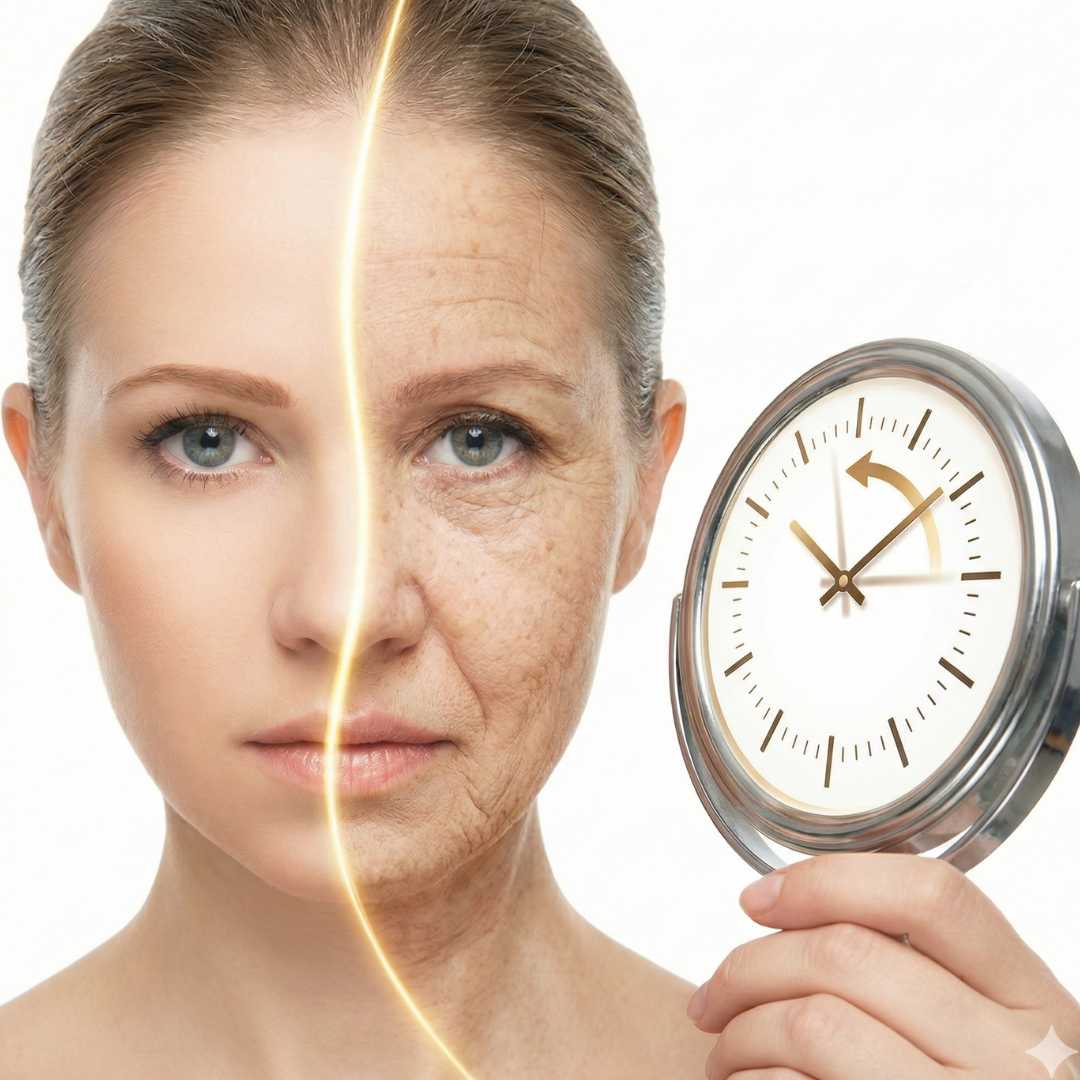
Embracing Your True Self: A Guide to Gender Confirmation Surgery Abroad
The journey to align one's physical body with their inner gender identity is deeply personal and transformative. For many transgender individuals, Gender Confirmation Surgery (GCS), sometimes searched for as "sex change operation," is a vital step towards living authentically and experiencing profound relief from gender dysphoria. This life-affirming process is not merely a cosmetic change but a critical medical intervention that significantly improves mental health, quality of life, and overall well-being.
Navigating the path to GCS can be complex, especially when considering factors like accessibility, cost, and specialized care. While domestic options exist, a growing number of individuals are exploring medical tourism for gender-affirming procedures. This allows them to access world-class surgeons, advanced techniques, and often more affordable pricing in countries renowned for their medical expertise and welcoming environments.
If you're experiencing a disconnect between your assigned gender at birth and your true gender identity, leading to feelings of discomfort or distress—known as gender dysphoria—exploring GCS options might be the next step in your journey. This comprehensive guide aims to shed light on everything you need to know about gender confirmation surgery, including the various types, eligibility, recovery, and the unique advantages of seeking treatment abroad. We understand the sensitivity and significance of this decision and are here to provide clear, compassionate information to help you make informed choices about your future.
Gender Dysphoria: Understanding the Journey to Self-Alignment
Gender dysphoria is the primary "condition" that Gender Confirmation Surgery seeks to alleviate. It's not a choice, but a deeply felt incongruence between an individual's internal sense of gender and their sex assigned at birth. While not every transgender person experiences dysphoria, or at the same intensity, for those who do, it can significantly impact daily life, mental health, and overall well-being. Recognizing these feelings is the first step towards seeking gender-affirming care.
Common manifestations and feelings associated with gender dysphoria often include:
- Persistent discomfort with one's primary or secondary sex characteristics: This might include feelings of revulsion towards one's chest, genitals, voice, or body hair. For example, a transgender woman might feel significant distress about having a beard or a penis, while a transgender man might struggle with having breasts or a vagina.
- A strong desire to be rid of one's primary and/or secondary sex characteristics: This often translates into a desire for gender-affirming medical interventions, including hormone therapy and surgeries.
- An intense longing to possess the primary and/or secondary sex characteristics of the experienced gender: This is a core driver for seeking procedures like vaginoplasty (for transfeminine individuals) or phalloplasty/metoidioplasty (for transmasculine individuals).
- A powerful conviction that one is of the other gender: This goes beyond mere preference; it's a fundamental understanding of one's identity.
- Significant distress or impairment in social, occupational, or other important areas of functioning: This highlights how dysphoria can impact relationships, work, and daily activities, making life feel difficult or inauthentic.
- Social anxiety and isolation: Fear of misgendering, discrimination, or simply not "passing" can lead to withdrawal.
- Depression and anxiety: Chronic dysphoria is strongly linked to higher rates of depression, anxiety disorders, and suicidal ideation.
Understanding these experiences is crucial for patients and providers alike, forming the foundation for developing a personalized gender affirmation plan, which may include GCS.
What Causes Gender Dysphoria and Who Is Eligible for GCS?
While the exact "cause" of transgender identity or gender dysphoria isn't fully understood, scientific consensus points towards a complex interplay of biological, neurological, genetic, and hormonal factors, rather than it being a psychological disorder or a lifestyle choice. Research suggests that gender identity is formed early in development, potentially before birth, and is distinct from sexual orientation.
Eligibility for Gender Confirmation Surgery (GCS) is typically guided by the World Professional Association for Transgender Health (WPATH) Standards of Care, which are widely accepted globally. These guidelines ensure that individuals seeking surgery are adequately prepared, both physically and psychologically. Key eligibility criteria often include:
- Persistent and well-documented gender dysphoria: This requires a diagnosis from a qualified mental health professional, affirming the individual's gender identity and the distress associated with their assigned sex at birth.
- Capacity to make fully informed decisions: The individual must understand the implications, risks, and benefits of the surgery.
- Age of majority in the country where surgery is performed: While some countries may have slightly different age restrictions, it's generally 18 years or older.
- Successful completion of a "real-life experience" (RLE) or social transition: Many guidelines recommend living in one's affirmed gender role for a period (e.g., 12 months) prior to surgery, though this is becoming less rigid for some procedures.
- Hormone therapy (where applicable): For many procedures (e.g., vaginoplasty, phalloplasty), a continuous period (e.g., 12 months) of hormone therapy is recommended to optimize surgical outcomes and ensure the body is prepared. However, it's not always a prerequisite for procedures like mastectomy or facial feminization surgery.
- Psychological assessment: Patients typically undergo evaluations by one or two mental health professionals to confirm readiness, address any co-occurring mental health conditions, and provide letters of support for surgery.
- Management of other medical conditions: Any significant medical or mental health conditions must be reasonably well-controlled to ensure patient safety during and after surgery.
These guidelines are designed to ensure the best possible outcomes for individuals undergoing GCS, prioritizing their health, safety, and long-term well-being. "What are the WPATH guidelines for GCS?" is a common search, indicating the importance of understanding these criteria.
Exploring Gender Confirmation Surgery Options: Mastectomy, Phalloplasty, Vaginoplasty, and More
Gender Confirmation Surgery is a broad term covering a spectrum of procedures designed to bring physical characteristics into alignment with an individual's gender identity. These surgeries are highly individualized, and a patient may choose one or several procedures over time based on their personal goals and medical needs. Patients often search for "male to female surgery options" or "female to male surgery types."
The main categories of GCS include:
- Top Surgery (Chest Procedures):
- Mastectomy (for Transmasculine Individuals): Often referred to as "FTM top surgery," this procedure removes breast tissue and contours the chest to create a more masculine appearance. Techniques include double incision with nipple grafts or periareolar/keyhole for smaller chests.
- Breast Augmentation (for Transfeminine Individuals): Often referred to as "MTF top surgery," this procedure uses implants to create a more feminine chest contour, typically after a period of hormone therapy has maximized natural breast development.
- Bottom Surgery (Genital Procedures):
- Vaginoplasty (for Transfeminine Individuals): The most common "MTF bottom surgery," it creates a vagina, labia, and clitoris, typically using penile and scrotal skin. Various techniques exist, including penile inversion, peritoneal flap, and colon graft.
- Orchiectomy (for Transfeminine Individuals): Surgical removal of the testes, often performed as a standalone procedure or as part of vaginoplasty.
- Phalloplasty (for Transmasculine Individuals): This "FTM bottom surgery" constructs a penis using tissue from other parts of the body (e.g., forearm, thigh, abdomen). It's a complex, multi-stage procedure that can include urethral lengthening, scrotoplasty (creation of scrotum), and testicular implants.
- Metoidioplasty (for Transmasculine Individuals): A less invasive "FTM bottom surgery" that utilizes hormonally enlarged clitoral tissue to create a small phallus. It may also include urethral lengthening and scrotoplasty.
- Hysterectomy and Oophorectomy (for Transmasculine Individuals): Surgical removal of the uterus and ovaries.
- Facial Gender Confirmation Surgery (FGCS):
- Facial Feminization Surgery (FFS): A suite of procedures (e.g., forehead contouring, rhinoplasty, jaw reduction, tracheal shave) to soften facial features for transfeminine individuals.
- Facial Masculinization Surgery (FMS): Procedures (e.g., jaw augmentation, chin augmentation, frontal bossing) to enhance masculine facial features for transmasculine individuals.
- Body Contouring: Liposuction, fat grafting, or gluteal augmentation to achieve desired body shape.
- Voice Surgery: Procedures to alter vocal pitch and quality (e.g., voice feminization surgery).
The choice of procedures depends entirely on the individual's specific goals and what will best affirm their gender identity, helping them to "feel at home in their own skin."
Your Gender Confirmation Surgery Recovery Journey: What to Expect
Recovery from Gender Confirmation Surgery is a significant part of the journey and varies greatly depending on the type and extent of the procedures performed. Patients often search for "how long is MTF surgery recovery?" or "FTM top surgery recovery timeline." It's crucial to have realistic expectations and a strong support system.
General recovery considerations:
- Top Surgery (Mastectomy/Breast Augmentation):
- Initial Recovery: 1-2 weeks for acute pain and mobility restrictions. Drains are typically removed within 1-2 weeks.
- Full Recovery: 6-8 weeks for most strenuous activities, with full healing of scars taking several months to a year. Compression garments are often worn for several weeks.
- Vaginoplasty:
- Initial Hospital Stay: 5-7 days for initial healing and pain management.
- First Few Weeks (at home/recovery housing): Significant rest is required. Pain, swelling, and bruising are common. Dilatation, a critical part of maintaining vaginal depth, begins shortly after surgery and becomes a lifelong practice.
- Full Recovery: 3-6 months for most physical discomfort to subside, with full sensation and scar maturation taking up to a year or more. Dilatation frequency gradually decreases over time.
- Phalloplasty/Metoidioplasty:
- Initial Hospital Stay: 7-14 days, often longer due to the complexity and potential for complications (especially with urethral lengthening).
- First Few Weeks/Months: Often involves multiple stages of surgery, so recovery is staggered. Pain management, wound care, and managing catheters are common. Physical activity is severely restricted.
- Full Recovery: Can take 6-12 months or longer, particularly if multiple stages or revision surgeries are needed. Sensation and functionality develop over time.
- Facial Feminization/Masculinization Surgery (FFS/FMS):
- Initial Recovery: 2-4 weeks for significant swelling and bruising to subside.
- Full Recovery: 6 months to a year for all swelling to resolve and final results to be visible.
Regardless of the procedure, patients will need to follow post-operative instructions diligently, including wound care, medication, and activity restrictions. Emotional support is also vital during this transformative but challenging period.
Understanding the Risks and Potential Side Effects of GCS
While Gender Confirmation Surgery is life-affirming, it's important for patients to be fully aware of the potential risks and side effects, as these are major surgical procedures. A thorough discussion with your surgeon about "Is gender reassignment surgery painful?" and specific risks is essential. Risks vary by procedure, but some general and specific concerns include:
General Surgical Risks (applicable to all major surgeries):
- Infection: Can occur at the surgical site, requiring antibiotics or further intervention.
- Bleeding/Hematoma: Excessive bleeding during or after surgery, potentially requiring drainage.
- Adverse Reaction to Anesthesia: Although rare, serious complications can arise from anesthesia.
- Blood Clots: Deep vein thrombosis (DVT) or pulmonary embolism (PE) are serious but preventable risks.
- Scarring: All incisions result in scars, which vary in visibility depending on the individual and surgical technique.
- Pain: Post-operative pain is expected and managed with medication.
Procedure-Specific Risks:
- Vaginoplasty:
- Vaginal Stenosis/Shallow Depth: Requires consistent dilation to prevent narrowing and maintain depth.
- Rectal or Urethral Injury: Rare, but serious complications during surgery.
- Fistula: Abnormal connection between the vagina and rectum/urethra, requiring corrective surgery.
- Loss of Sensation: Can occur in parts of the neovagina or clitoris.
- Hair Growth within Vagina: If hair-bearing skin is used and not properly epilated beforehand.
- Phalloplasty/Metoidioplasty:
- Urethral Fistula/Stricture: Most common complication, where urine leaks from the urethra or becomes narrowed, often requiring revision.
- Necrosis (Tissue Death): If blood supply to the new phallus is compromised.
- Loss of Sensation: Can occur, though some sensation usually returns over time.
- Implant Complications: Infection, erosion, or mechanical failure of testicular or erectile implants.
- Donor Site Issues: Scarring, nerve damage, or reduced function at the site where tissue was taken.
- Mastectomy/Breast Augmentation:
- Nipple Sensation Changes: Can range from decreased to increased sensitivity or complete loss.
- Seroma: Fluid collection under the skin.
- Capsular Contracture (Breast Augmentation): Hardening of tissue around implants.
- Facial Feminization/Masculinization Surgery:
- Nerve Damage: Can lead to temporary or permanent numbness or weakness in facial muscles.
- Asymmetry: Slight differences in facial features.
- Hairline/Scalp Issues: Hair loss or scarring along incision lines.
Choosing an experienced surgeon and following all pre- and post-operative instructions meticulously significantly reduces these risks.
Gender Confirmation Surgery Cost Abroad: A Global Perspective
One of the primary drivers for medical tourism in Gender Confirmation Surgery is the significant cost difference compared to procedures in countries like the USA, Canada, or Western Europe. "How much does gender confirmation surgery cost internationally?" is a key concern for many. While insurance coverage for GCS is increasing in some regions, it remains inconsistent and often doesn't cover all desired procedures or the full cost. Medical tourism provides an accessible pathway for many.
Estimated Cost Comparison for Key GCS Procedures (USD):
| Procedure | USA/Canada/Western Europe (Estimated Range) | Popular Medical Tourism Destinations (Estimated Range) |
|---|---|---|
| FTM Mastectomy (Top Surgery) | $7,000 - $15,000 | $4,000 - $9,000 (e.g., Thailand, Mexico, Turkey) |
| MTF Breast Augmentation | $6,000 - $12,000 | $3,000 - $7,000 (e.g., Thailand, Mexico, Turkey) |
| Vaginoplasty (MTF Bottom Surgery) | $20,000 - $50,000+ | $10,000 - $25,000 (e.g., Thailand, Serbia, Mexico) |
| Phalloplasty (FTM Bottom Surgery, Multi-Stage) | $50,000 - $100,000+ per stage | $25,000 - $60,000+ per stage (e.g., Serbia, Thailand) |
| Metoidioplasty (FTM Bottom Surgery) | $15,000 - $30,000 | $8,000 - $18,000 (e.g., Thailand, Mexico) |
| Facial Feminization Surgery (FFS, full suite) | $25,000 - $60,000+ | $15,000 - $35,000 (e.g., Thailand, South Korea, Spain) |
*These are estimated ranges and can vary widely based on surgeon's experience, clinic reputation, specific techniques used, individual patient needs, and what's included in the package (e.g., accommodation, aftercare). It's crucial to get personalized quotes.
The cost savings can be substantial, making GCS more accessible for many who might otherwise face prohibitive expenses domestically.
Why Consider Gender Confirmation Surgery Abroad?
The decision to seek GCS abroad is often driven by a combination of practical and personal factors. For many, it's not just about affordability, but about finding the right environment and expertise for such a momentous life event. Patients often ask, "Where can I get affordable gender confirmation surgery?"
- Significant Cost Savings: As detailed in the cost comparison, the price difference can be thousands, even tens of thousands, of dollars. This makes GCS a reality for individuals who might not otherwise afford it.
- Access to Highly Specialized Surgeons: Certain countries and clinics have become global centers for GCS, attracting top surgeons with vast experience in specific gender-affirming procedures. This allows patients to choose from a wider pool of experts.
- Reduced Wait Times: In many Western countries, waitlists for GCS can stretch for years due to high demand and limited specialized providers. Abroad, wait times are often significantly shorter, allowing patients to proceed with their transition sooner.
- Comprehensive Packages: Many international clinics offer all-inclusive packages that cover surgery, hospital stay, post-operative accommodation, transportation, and nursing care, simplifying the logistical burden for patients and their companions.
- Discretion and Privacy: For some, traveling abroad offers a level of anonymity and privacy that may not be possible in their home country, allowing them to recover away from judgment or unwanted attention.
- Supportive Environment: Many clinics catering to medical tourists, particularly for GCS, are highly attuned to the unique needs of transgender patients, offering culturally sensitive and affirming care.
Which Countries Offer the Best Value and Care for GCS?
Choosing the right destination for GCS is a critical step. "What countries are best for transgender surgery?" is a common question, and several nations have emerged as leaders in gender-affirming care, known for their experienced surgeons, modern facilities, and patient-focused approach:
- Thailand:
- Reputation: Widely considered a global pioneer and leader in Gender Confirmation Surgery, particularly for transfeminine procedures (vaginoplasty, FFS).
- Expertise: Home to some of the world's most experienced GCS surgeons with decades of experience and innovative techniques.
- Cost-Effectiveness: Offers excellent value for money without compromising on quality, often including extensive post-operative care.
- Patient Experience: Known for its warm hospitality, discreet recovery environments, and well-established medical tourism infrastructure.
- Serbia:
- Reputation: Gaining prominence, especially for both transfeminine and transmasculine procedures (phalloplasty, metoidioplasty).
- Expertise: Features highly skilled surgeons who have trained internationally and developed advanced techniques.
- Cost-Effectiveness: Offers very competitive pricing, often lower than Western Europe, with high standards of medical care.
- Patient Experience: Provides personalized care in modern facilities, often with direct communication between patients and surgeons.
- Mexico:
- Reputation: A popular choice, especially for North American patients, due to its proximity and accessible travel.
- Expertise: Many Mexican surgeons are U.S.-board certified or have extensive international training. Offers a wide range of GCS procedures.
- Cost-Effectiveness: Generally more affordable than the US, with good quality care.
- Patient Experience: Offers a diverse range of clinics, from smaller boutique centers to larger hospitals, often with English-speaking staff.
- Other Notable Destinations: Countries like Turkey, Spain, and India are also developing strong reputations for GCS, offering specialized care and competitive pricing.
Researching specific clinics and surgeons within these countries is paramount, looking for transparent pricing, patient testimonials, and adherence to international medical standards.
What to Expect When Traveling Abroad for Your Gender Confirmation Surgery?
Undertaking GCS abroad is a significant endeavor that requires careful planning beyond just the surgery itself. "What should I know about transgender healthcare abroad?" is a common thought for first-time medical tourists.
Here’s what you can generally expect and need to prepare for:
- Pre-Travel Consultations: Initial consultations are often conducted remotely via video calls, where you discuss your goals, medical history, and suitability for surgery. You'll also need to submit required documentation (e.g., letters of support from mental health professionals).
- Travel Logistics:
- Passport and Visa: Ensure your passport is valid and check visa requirements for your chosen destination.
- Flights: Book flexible flights, allowing for potential changes. Consider direct flights to minimize travel stress.
- Accommodation: Plan for a hospital stay, followed by dedicated recovery accommodation (e.g., a hotel, guesthouse, or specialized recovery house) for several weeks to months, depending on the procedure.
- Companion: Strongly consider bringing a trusted friend, family member, or partner to provide support during recovery.
- Arrival and Pre-operative Appointments:
- Upon arrival, you'll typically have in-person consultations with your surgeon, anesthesiologist, and other medical staff.
- Pre-operative tests (blood work, ECG, imaging) will be conducted to ensure you are fit for surgery.
- You'll sign consent forms and have a final opportunity to ask any questions.
- The Surgery Itself: The procedure will be performed in a modern hospital or specialized clinic.
- Post-operative Care and Recovery:
- Hospital Stay: Varies from a few days to two weeks depending on the surgery.
- Extended Recovery: You will spend several weeks to months in your chosen recovery accommodation for initial healing. This period involves wound care, medication, and often specific post-operative protocols like dilatation for vaginoplasty patients.
- Follow-up Appointments: Regular check-ups with your surgical team will be scheduled to monitor your healing progress.
- Cultural Considerations: Research the local culture, customs, and language. While medical staff often speak English, understanding basic phrases and cultural norms can enhance your experience.
Working with a medical tourism facilitator like PlacidWay can significantly streamline this process, handling many of the logistical arrangements and providing support throughout your journey.
How to Ensure Safety and Quality for GCS Abroad?
Ensuring the safety and quality of your GCS abroad is paramount. While cost savings are attractive, compromising on safety is never an option. Here are key steps to take:
- Verify Clinic Accreditation: Look for clinics accredited by international bodies like the Joint Commission International (JCI) or other reputable national healthcare accreditations. This signifies adherence to global standards of patient safety and quality.
- Research Surgeon Credentials and Experience:
- Confirm your surgeon's board certifications, specialized training in GCS, and the number of procedures they have performed.
- Review their before-and-after photos and seek out independent reviews.
- Enquire about their specific techniques and success rates for the procedures you are considering.
- Adherence to WPATH Standards of Care: Ensure the clinic and surgical team follow the WPATH Standards of Care, which are the internationally recognized guidelines for transgender healthcare. "What are the WPATH guidelines for GCS?" is a vital question.
- Transparent Communication: The clinic should provide clear, honest information about procedures, risks, recovery, and costs. They should be responsive to your questions and have English-speaking staff if needed.
- Comprehensive Pre-operative Assessment: A good clinic will require thorough medical and psychological assessments to ensure you are a suitable candidate and minimize risks.
- Robust Post-operative Care Plan: Confirm what post-operative care is included (e.g., hospital stay, nursing support, follow-up appointments, emergency protocols) and how long you are expected to stay in the country for recovery.
- Patient Testimonials and Reviews: Seek out reviews from previous international patients, especially those who underwent similar procedures. Online forums and support groups can be valuable resources.
- Medical Travel Insurance: Invest in comprehensive medical travel insurance that specifically covers complications arising from planned surgical procedures abroad.
A reputable medical tourism facilitator can help vet clinics and surgeons, ensuring you connect with providers who meet stringent safety and quality benchmarks.
What Are Patient Success Stories from Abroad for GCS?
The true measure of success in Gender Confirmation Surgery lies in the profound, positive impact it has on an individual's life. Across the globe, countless transgender individuals have embarked on their GCS journey through medical tourism and found immense satisfaction and a renewed sense of self.
Common themes emerging from patient success stories include:
- Profound Emotional and Psychological Relief: Many describe feeling "complete" or "finally at home in their own skin" after surgery, experiencing a significant reduction in gender dysphoria, anxiety, and depression. This is the core benefit and ultimate success.
- High Satisfaction with Aesthetic and Functional Outcomes: Patients frequently praise the skill of their international surgeons, reporting results that closely align with their gender identity and allow for improved quality of life (e.g., comfortable clothing, sexual function, public confidence).
- Exceptional Care and Compassion: Reviews often highlight the dedicated and empathetic care received from medical teams abroad, noting that clinics catering to GCS medical tourists are particularly understanding and supportive of the transgender community.
- Accessibility and Affordability: Many success stories emphasize that traveling abroad made their surgery financially possible, enabling them to achieve their transition goals without overwhelming debt.
- Streamlined and Supportive Experience: Patients who worked with medical tourism facilitators often report a smooth, stress-free experience, from initial inquiry to post-operative recovery, thanks to comprehensive package deals and logistical support.
- Increased Confidence and Authenticity: Achieving physical alignment often translates to greater self-confidence, allowing individuals to live more authentically in all aspects of their lives, from relationships to careers.
These stories serve as powerful testimonials to the life-changing potential of Gender Confirmation Surgery abroad, demonstrating that quality, affordable, and compassionate care is within reach for those seeking to affirm their true selves.
Take the Next Step with PlacidWay
Ready to explore treatment options abroad? Discover top clinics, compare prices, and get a free quote tailored to your needs with PlacidWay.
Cosmetic Surgery Abroad, Plastic Surgery Abroad





.png)
.png)
.png)


Share this listing